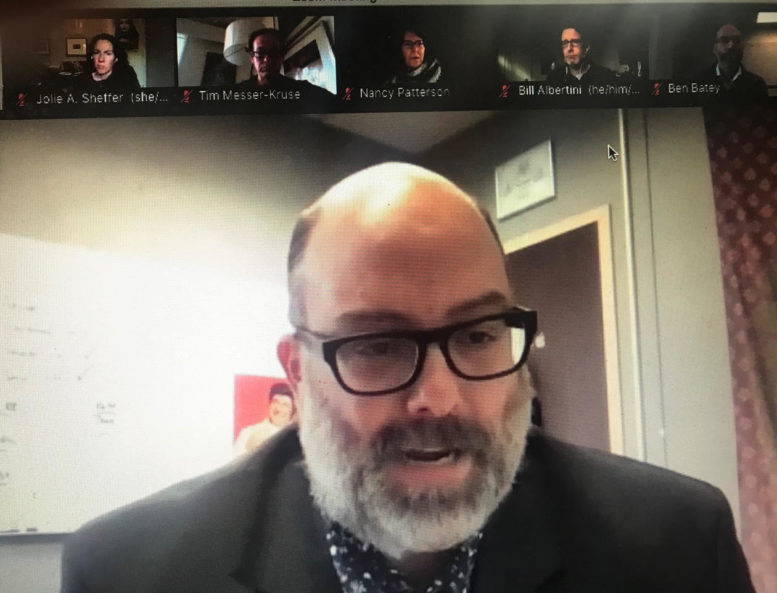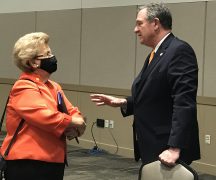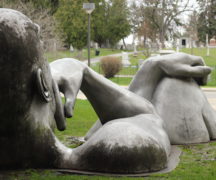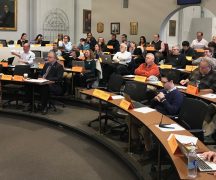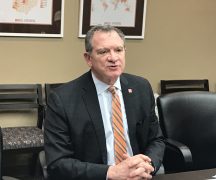By DAVID DUPONT
BG Independent News
University faculty members are objecting to a plan floated by the administration at Bowling Green State University to offer a required course that would cover democracy and cultural diversity.
The concept for the course was first presented to the BGSU Board of Trustees in September during a meeting of the Committee on Diversity and Belonging.
The trustees were told by Jennifer McCary, the university’s chief diversity and belonging officer, that the course, BGSU 1914, is envisioned as a way to educate all members of the BGSU community on issues regarding diversity, inclusion and democracy. It will help students discuss race within the context of democracy; enhance students’ knowledge of the U.S. government and how race has been treated over the years; and consider how these issues are related.
Faculty who would teach the course had yet to be identified.
At Tuesday’s meeting, Faculty Senate President Christopher Frey said having a course, and its contents, proposed to trustees before it has been discussed with faculty is unprecedented, and a violation of the Academic Charter which states “the primary responsibility for the development and maintenance of the university’s academic programs belongs to the faculty.”
Trustees do not even approve individual courses, never mind discuss their specific contents.
But Frye and other faculty members only became aware of the plans for such a course from news reports – a story published on the trustees meeting in BG Independent News and a story in the BG News on a presentation McCary made to undergraduate student government in October.
He reached out to faculty and administrators in the School of Cultural and Critical Studies, and the departments of history, political science, and sociology, none of whom had been consulted on the development of the course.
The course does not yet exist, yet students, he said, were being encouraged to enroll.
In September, the trustees were told a pilot course with 160 students would be offered.
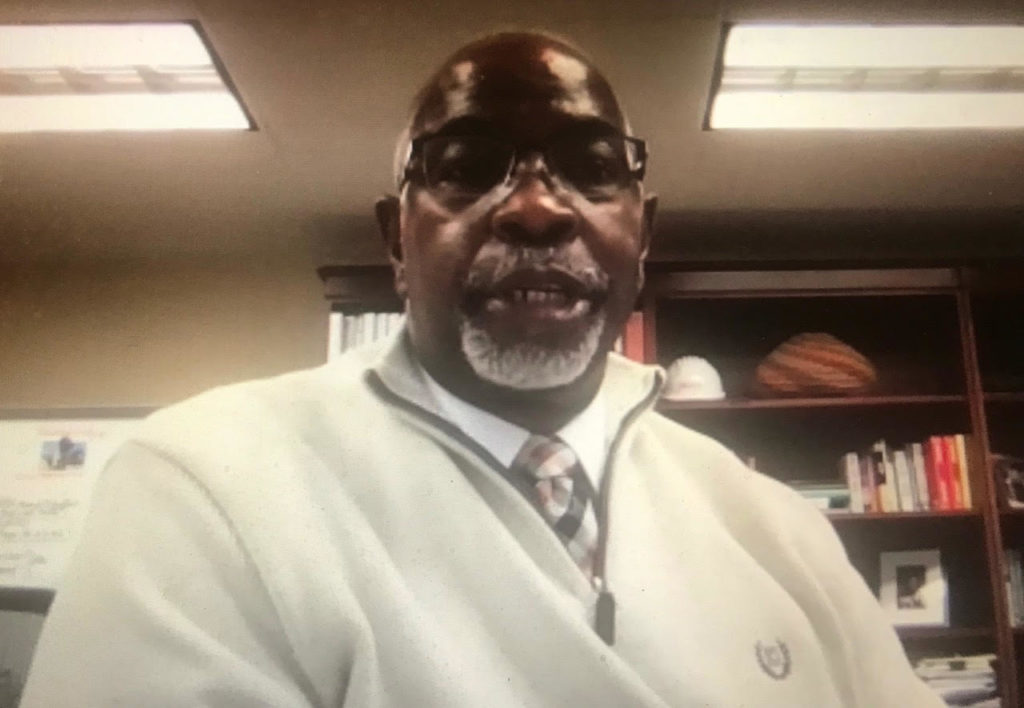
Provost Joe Whitehead told the Faculty Senate, that this timeline was overly ambitious. He also assured them that the process for creating a course would be followed.
President Rodney Rogers announced that an open meeting would be held on Dec. 17 at a time to be determined.
Why have faculty not been involved in the development of the course, Frey asked.
Among the faculty’s concerns is that this would count for the requirement to take a course in cultural diversity. The university already offers many courses that fulfill this requirement. Now students would have to take BGSU 1914, likely leading to a drop in enrollment in those other courses.
Frey also questioned how the offer a single course to so many students. McCary told trustees all first year and sophomore students would be required to take it before graduating.
Frey said that he’d been told it could be offered in a format similar to a mass online open course with a large online lecture section and smaller discussion groups.
Whitehead said that was just an idea that was mentioned.
Both he and Rogers said that Frey’s presentation was based on unfounded assumptions.
Whitehead said one of those was that there was no one in the administration advocating for faculty. That’s not true, he said.
However, neither Rogers nor Whitehead addressed the central question of why faculty had yet to be involved in the development of the course.
Both Timothy Messer-Kruse, an historian who teaches in the School of Cultural and Critical Studies, and Apollos Okwuchi Nwauwa, director of Africana Studies, asked what the dissatisfactions with the current program were.
Nwauwa characterized BGSU 1914 as “reinventing the wheel.”
Messer-Kruse noted that thousands of students take more than 100 courses in cultural diversity. “We literally teach thousands of students,” he said. “What is the need for supplanting the courses that we currently have in the catalog and we teach with a new course and a new curriculum? What is it that you think that we’re doing incorrectly or wrong?”
“We’re not saying you’re doing anything incorrectly or wrong,” Whitehead responded. “We’re just saying: What can we do better? How can we engage our students with a different perspective? … And so it’s not what you’re not doing or you’re doing something wrong, it’s how can we meet our students where they are today with how things have actually evolved in recent years.”
Earlier he had referenced the protests in spring 2020 sparked by the deaths of George Floyd, Brianna Taylor and Ahmaud Arbery. He said there are students in Bowling Green who “feel unsafe.”
“We have a responsibility to help our students understand who we are as a society,” he said. “So we can help plot a better future, so we can avoid these unfortunate things.”
The course grew from discussions of those concerns.
“We all must remember that there are different perspectives on things that need to help our students be better citizens, so we can move forward” toward a society that’s “more cohesive,” Whitehead said. “If you look at what’s happening in our society, now we’re becoming more divided.”
At the trustees meeting, McCary also stated that BGSU 1914 would not teach Critical Race Theory, a legal concept defining systemic racism.
Frey said the implications of an administrator making that kind of statement appears to be “addressing specific concerns that the trustees have about the content of existing courses on our campus.”
Articulating these concerns to the trustees amounts to “a grave violation of the principle of academic freedom, particularly when these are made in anticipation of an election day that we all know” witnessed “the politicization of critical race theory and the importance of this happening on boards education.”
McCary also told trustees that the intent of the course was not to make any group of students feel ashamed or embarrassed.
In his remarks, Nwauwa questioned whether he should “bend history” in a way to make all students “happy.”
Whitehead said it was a matter of “inclusive pedagogy.”
“We can engage students in such a way that they don’t feel excluded,” he said. “That’s how I interpret the statement. It’s not that we don’t teach history truthfully.”
Frey said that that he would explore the possibility of setting up a senate ad hoc committee to do more inquiry.
“I am particularly interested in the role of the Board of Trustees,” he said as well as the process that was followed in bringing BGSU 1914 forward.

